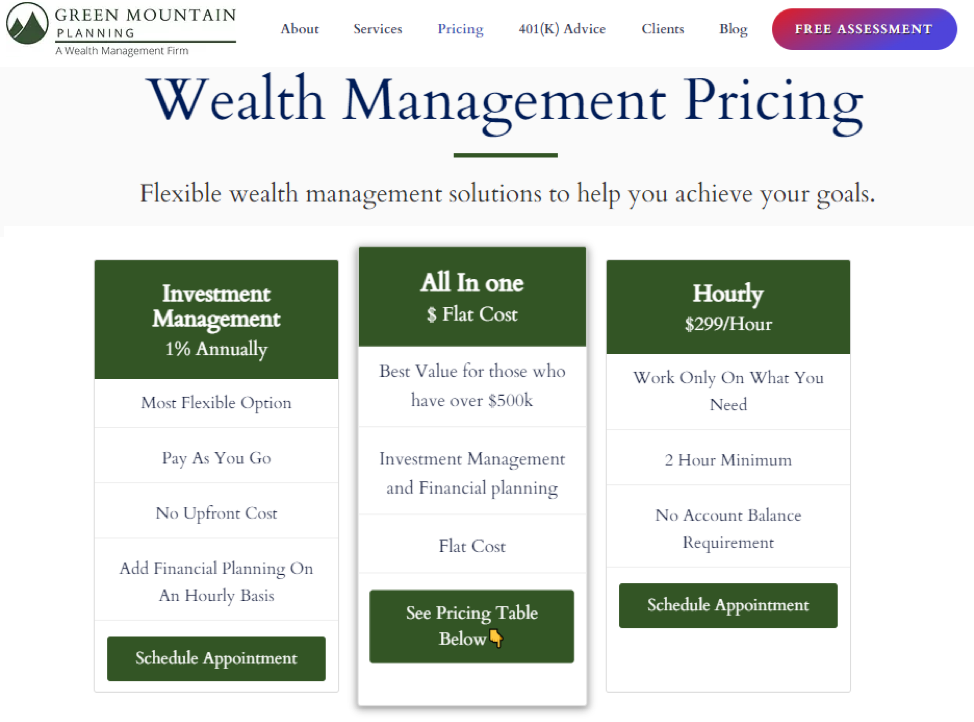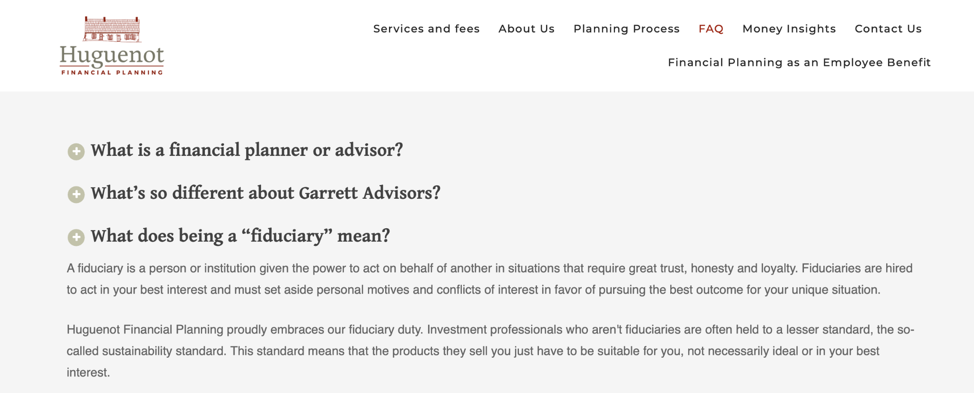3. Always Provide A Fees Page
People often assume a service is more expensive if it doesn’t come with a price tag. So why invite that idea in the people visiting your website?
A fees page gives visitors expectations. It shows them exactly what they’re getting for their money and can save time for you and your team.
When crafting this page, consider your audience. Do you work with retirees or pre-retirees? If so, a more traditional assets-under-management approach might be best. Are millennials your ideal audience instead? Then consider a subscription or onetime fee structure.
You don’t have to find one fee structure for every type of client. The key is to consider your audience and use what works; multiple options can help you attract different clients.
Green Mountain Planning is a firm that provides services to retirees and pre-retirees, and its website has a great example of a multi-option fees page.

4. Lay A Foundation For Search Engine Optimization
To get the most out of your website, you’ll want to make sure it’s searchable. The best way to do that is to invest in search engine optimization—which boosts your appearances in searches to increase your traffic.
This is a complex topic. Here’s a checklist of items that can help improve your site’s searchability.
Create an FAQ page: An FAQ page gives you the space to answer common questions about your firm. If someone puts that same question into a search engine, there is a chance your site could appear in the results. Be sure to make these questions highly specific to your firm.
Verify your “Google My Business” listing: This allows you to verify and display your business information within a Google search. It gives searchers a snapshot of your website, contact information and more. And if there are positive reviews, it contributes to your search ranking.
Start a blog: Blogging is one of the most powerful search engine optimization strategies you can invest in. It’s like your FAQ page, but with more information.
Be active on social media: This doesn’t directly affect your results in search engines, but it does attract site traffic and provides an outlet for blog content, both of which can improve your profile in search results.
Whenever you’re trying to drive traffic, be sure to search the terms you’re using to see what search engines provide. This will give you context into the search intent and provide possible questions related to your keywords. These questions can then be used directly in your other content to help increase ranking.
For example, the Huguenot Financial Planning site uses a mix of common and specific firm-related questions to create a comprehensive FAQ page:









